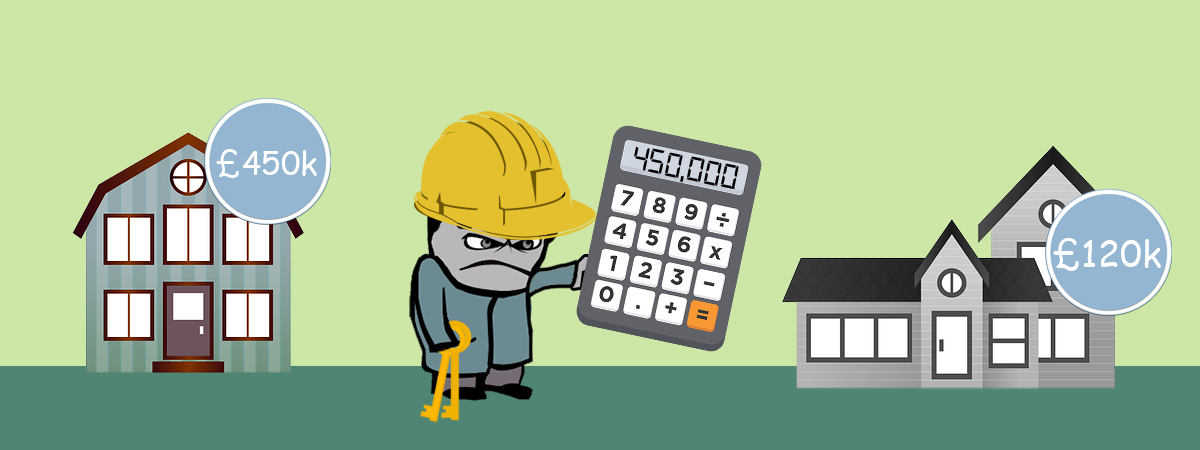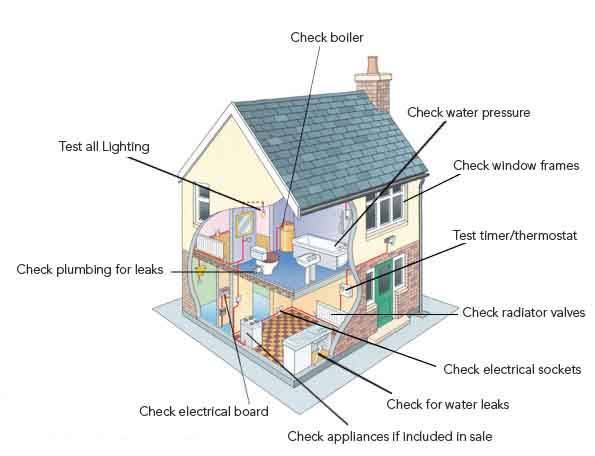
Once you’ve found a property you’re interested in purchasing, secured the mortgage and have acquired the services of a conveyancing solicitor, you’re just about ready to start thinking about a structural survey to ensure you’re not about to purchase a flimsy death-trap that’s on the verge of toppling.
What is a structural Survey?
It’s a report that is designed to satisfy a consumer that the property has no obvious structural defects. The survey is basically there for consumer protection. There are three main types of surveys available:
- Basic valuation
- Homebuyers Survey & Valuation
- Full structural
The differences are pretty straight forward; each report gets more elaborate from each other. The full structural is the most elaborate report, but it comes at a greater cost than the other two options. However, a full structural report has the potential to pick on defects that the other two reports may not. If you are buying an old property, it’s imperative you loosen the purse strings and opt for the full structural option. If your property does not need a comprehensive building survey, but you need more than just a simple Valuation, then the ‘Homebuyers Survey & Valuation’ is what you should require.
Basic Valuation
A basic valuation is an inspection performed by your mortgage lender to ensure their investment in your property is worthy. Essentially, your lender wants to know whether your property is worth at least the amount they are lending you. The valuation is not actually a survey; it’s merely a limited inspection. A property can have defects that a mortgage lender won’t care about and therefore won’t flag it on the report, however, it may affect you once you own the property.
If problems emerge which the basic survey didn’t warn you about then you have a case to claim for damages to cover the necessary repair work. A lot of people believe otherwise, but you can make claims if the problems are blatant and unnoticed.
Homebuyer’s Survey
This survey is the mid range report of the three. The service is carried out to a standard format defined by the Royal Institute of Chartered Surveyors (RICS). The survey is designed for properties built within the last 150 years, which are of conventional construction and in reasonable condition. The report focuses on significant and urgent matters, such as:
- Property’s general condition
- The value of the property on the open market
- Comments on the existence and condition of damp proofing, insulation, and drainage
- Results of any testing of walls and dampness
- Any defects in accessible parts of the property, which may affect value
- Urgent matters that need assessing before entering into exchanging contracts
Full structural Survey

Here are a few of the issues a full structural should report on:
- Background: who wants the property and where it is located
- Circumstances of the inspection: E.g. what the weather was like on the day on inspection
- Description: history of the property; how the house has been adapted over the years
- Construction: what material the walls and roof are made from, and any other construction features
- Roof coverings: a detailed description of all roof coverings including porches
- Rainwater goods and waste pipes: detailed description of efficiency of the guttering
- Walling: detail of the walls both internal and external
- Joinery: condition of external and internal joinery e.g windows and doors
- Decorations: summary of how good the paintwork is
- Damp proof: notes on the damp and ventilation
- Garage and outbuildings: description of the garage e.g what kind of condition it is in
- Drainage: location and state of drains
- Site: description of the level of the site, fences, gardens and nearby roads
- Roof void: internal roof description including state of timbers and ceiling
- Internal flooring: description of flooring in all areas of the property including the type and finish
- Ceilings: what materials they are made from, and the height
- Timber infestations: report on whether the wood is suffering from woodworm, dry rot, wet rot
- Electrics: state of wiring system
- Plumbing: strand of water pressure, location of stop cocks and storage rank
- Heating: type, age, and efficiency of heating system
- Additional enquiries: any additional reports you required
Bear in mind, full structural surveys can be performed to meet your needs. If there is anything extra you want checked, you can request it. Surveyors are not obliged to inspect inaccessible areas- they won’t check in the corner of your loft for rotting timber unless you specifically ask them to do so.
Why is it a good idea to get a structural survey?
Buying a property is an expensive process, so it’s only natural that buyers want to make as many financial shortcuts as possible. One of the most common shortcuts is skimping on the survey. Buyers tend to rely on the information provided by the basic valuation when deciding whether or not to purchase a property. That’s probably acceptable if the property is fairly new, but relying on a valuation report for an old or unusual property is a big gamble, and I would never advise it. Remember, a survey will give you a legal recourse and benefits the borrower than the lender, a valuation won’t.
Forking out £1k on a structural survey may seem steep, but it doesn’t sound all that expensive when you consider how much money it could save you. You could purchase a property without doing a survey, and then later on find out that the entire roof needs restructuring, which could cost you £15k. Once contracts have exchanged, the vendor is no longer liable for that property.
Who does the survey?
The valuation is usually done on your behalf by your lender. If you want to go a step further by getting a homebuyer’s or full structural survey, you can instruct an independent surveyor to do so. However, your lender can also usually arrange it for you at a reasonable cost.
How much is a structural report?
Costs can vary, but a basic valuation can start from about £200, and a full structural one can cost approx £1k. These are vague estimates. Feel free to shop around (I advise you to do so).
Do I Need a Valuation or structural Survey?
The valuation report is the bare minimum requirement from most lenders. You won’t be granted a loan without one. The costs are usually included in your mortgage fees.
Disclaimer: I'm just a landlord blogger; I'm 100% not qualified to give legal or financial advice. I'm a doofus. Any information I share is my unqualified opinion, and should never be construed as professional legal or financial advice. You should definitely get advice from a qualified professional for any legal or financial matters. For more information, please read my full disclaimer.


 Landlord Products / Services
Landlord Products / Services




























We paid for a survey (£360 Inc VAT) The number of items found was amazing. He even pointed out that the Artex on the ceiling (15'X 10')could contain Asbestos! We had a quote from a specialist company for over £2200+Vat and any "extras" and then £500 for a plasterer as they did not do plastering (stripping and disposal of asbestos only). Adding this to some other issues the surveyor raised we considered ourselves to have saved a lot and lost no sleep. We never instruct our solicitor to begin her work until we have read the survey otherwise you can incur legal expenses you could have avoided by waiting.
Hope this is useful.
Hugh